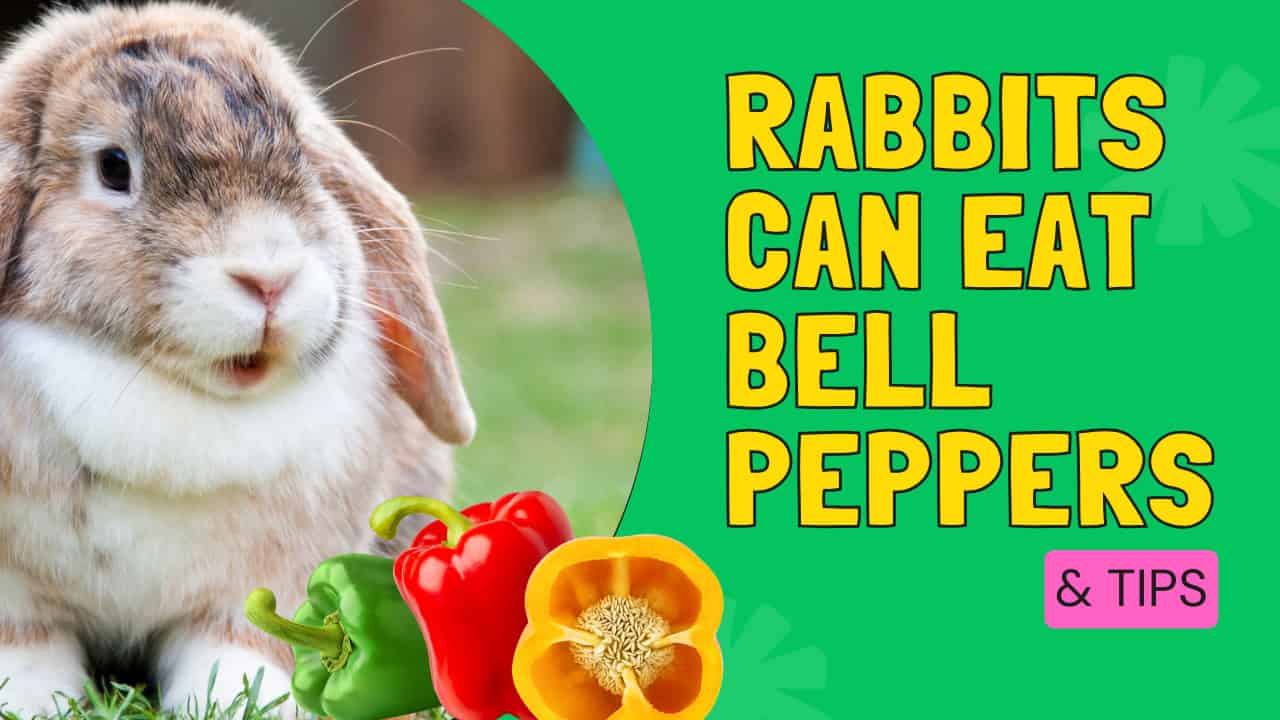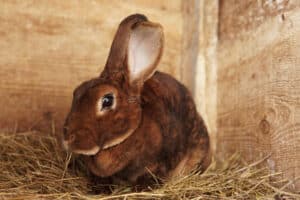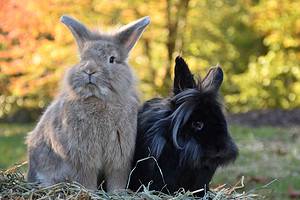Almost everyone knows how much rabbits enjoy leafy green vegetables and the occasional carrot. But what about spicier vegetables? It turns out, yes, rabbits can eat bell peppers. These colorful veggies add variety and flavor to a rabbit’s diet, as well as vital nutrients. However, owners should follow a few tips when adding bell peppers to their rabbit’s menu.
Offer Bell Peppers in Moderation
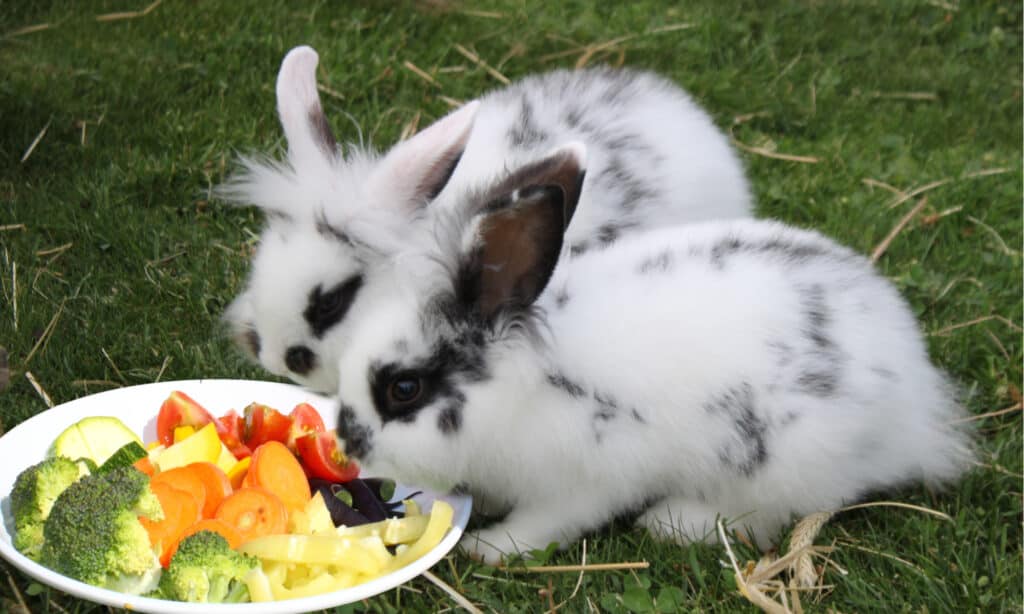
Rabbits can eat bell peppers and many other vegetables in moderation.
©Robirensi/Shutterstock.com
Roughly 80 percent of a pet rabbit’s diet should consist of hay. Rabbits can eat their own body volume or more in hay every day. They should receive a variety of different vegetables to supplement their diet. These can include many sorts of leafy green vegetables, as well as a variety of other vegetables and occasional fruits. Rabbits can eat bell peppers of any color in moderation. Unlike many root vegetables, such as carrots, or fruits, like strawberries and blueberries, which should be offered only once or twice a week, rabbits can eat small amounts of bell peppers every day.
Wash Bell Peppers Thoroughly
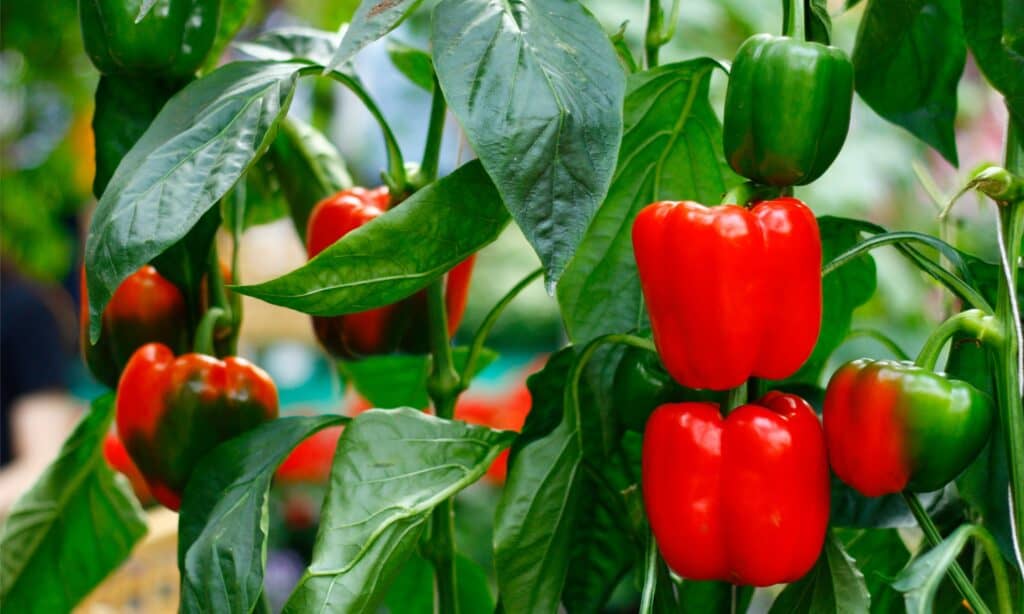
Bell peppers should be washed thoroughly to prevent contamination with pesticides or other chemicals.
©iStock.com/Vasin Hirunwiwatwong
You should wash bell peppers thoroughly before offering them to your pet rabbit. You don’t want any pesticides or other potentially harmful residues on the food that you feed your rabbit.
Remove the Seeds and Stems
Although rabbits can eat bell peppers, they cannot easily digest the seeds or stems. You don’t want to cause your rabbit to have digestive issues by feeding it foods that it cannot digest. Stick to the fleshy part of the bell pepper and discard the rest.
Cut Bell Peppers in Pieces
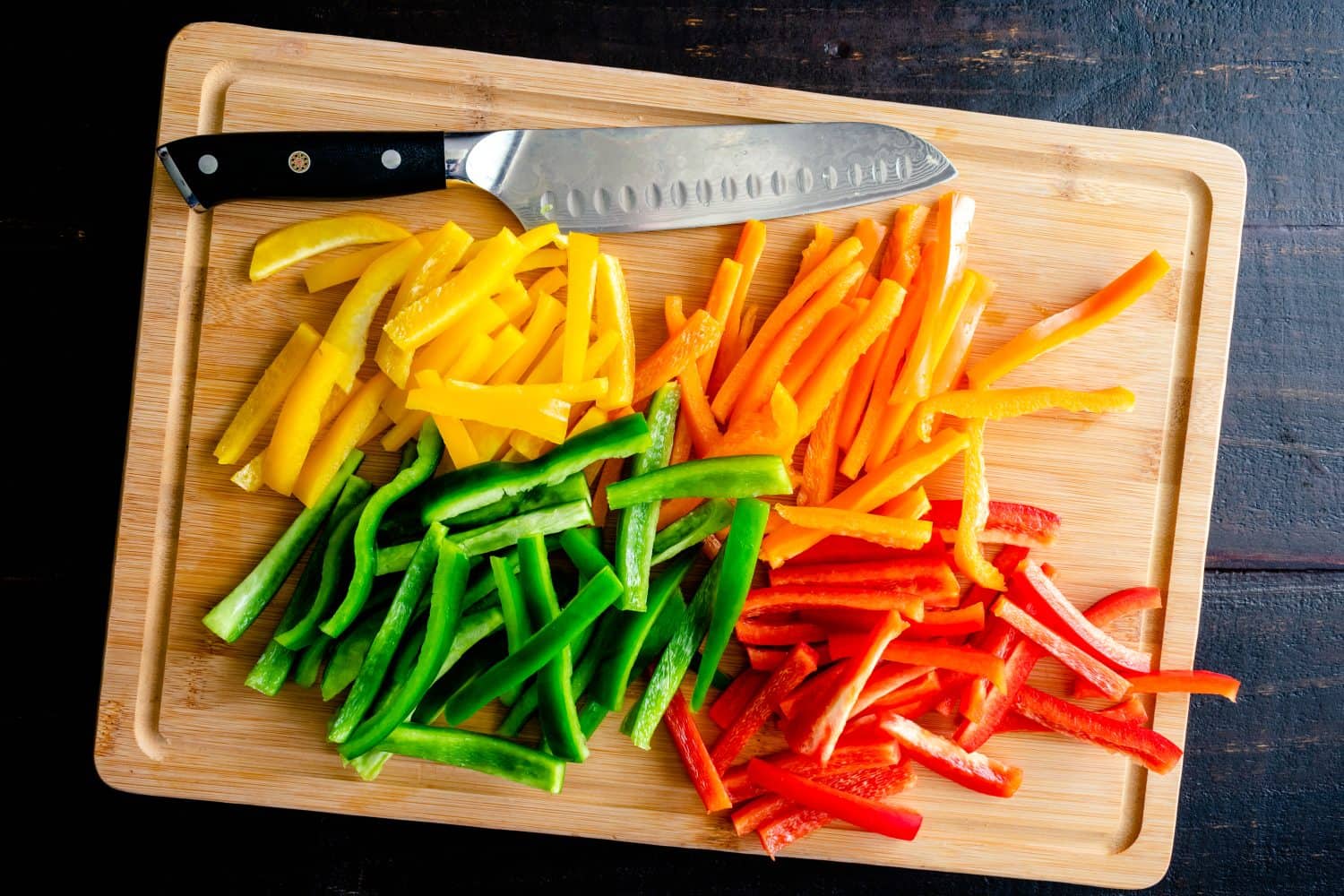
Cut bell peppers into small pieces before serving to your pet rabbit.
©Candice Bell/Shutterstock.com
Rabbits can eat bell peppers and other types of vegetables more easily if you cut them into small, easy-to-manage pieces. You might slice bell peppers into strips, like you would serve in fajitas, before offering them to your pet.
Do Not Cook Bell Peppers Before Serving
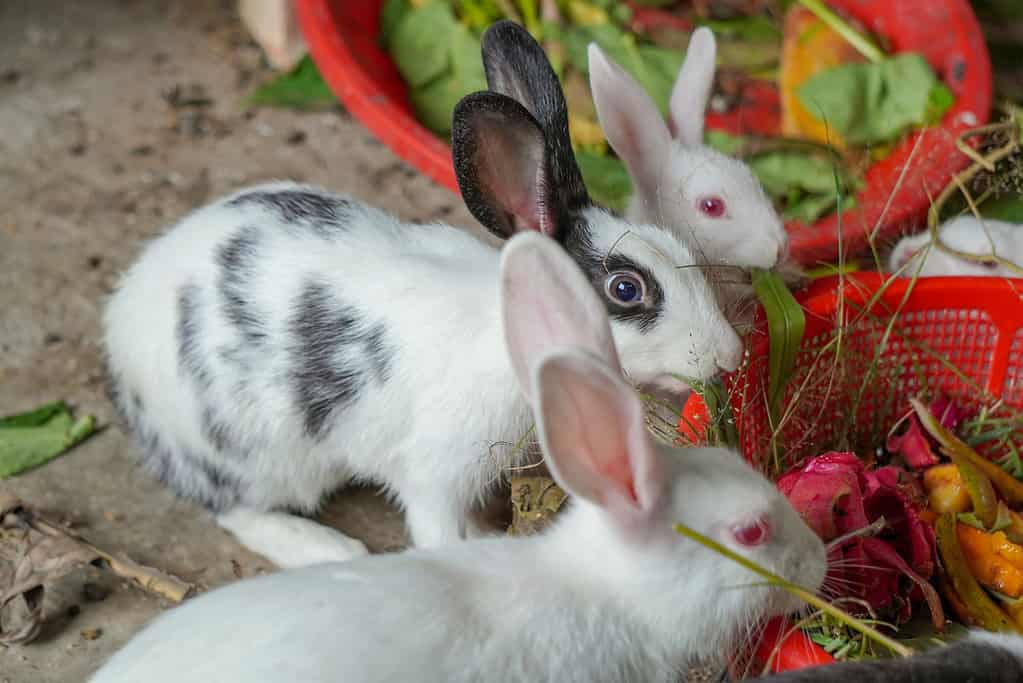
Pet rabbits enjoy fresh, raw vegetables as part of a healthy diet.
©A S M Almas/iStock via Getty Images
Rabbits should eat clean, raw veggies and fruits as treats. You do not need to cook foods like bell peppers before serving them. In fact, cooking some vegetables can reduce the amount of available nutrients.
Introduce Bell Peppers at Adulthood
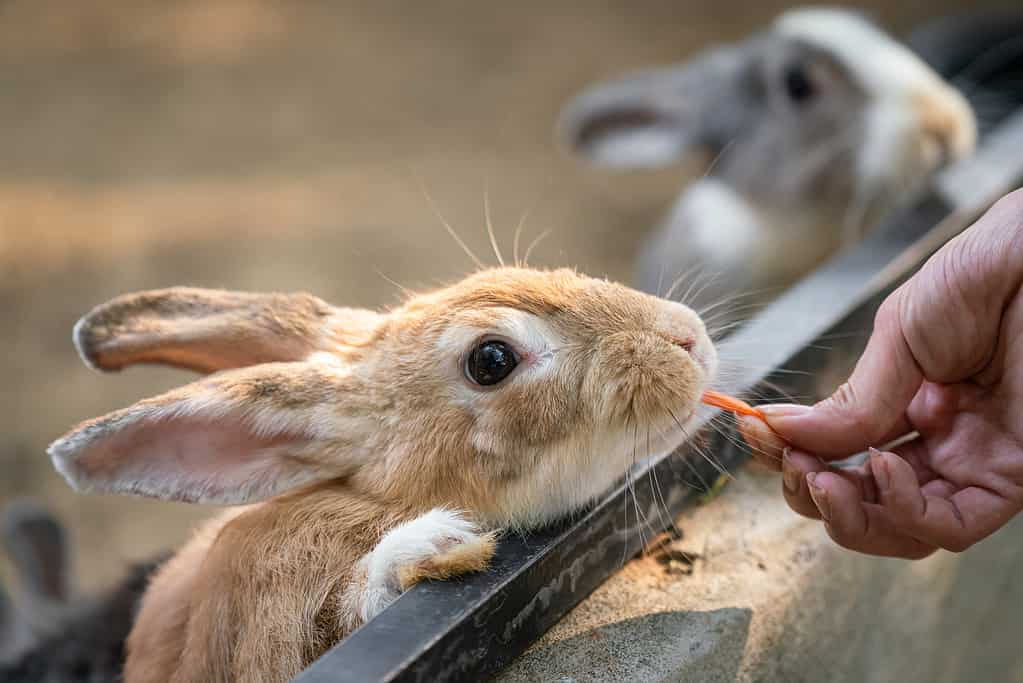
Do not introduce vegetable treats to pet rabbits until they reach adulthood.
©Thank you for your assistant/iStock via Getty Images
Bell peppers and other vegetables should not be introduced into a rabbit’s diet until they reach adulthood, sometime around 7 months of age. When you introduce bell peppers or any other new food, do so one food at a time so you will know if the particular food causes issues.
Watch for Signs of Intolerance
Offer your pet rabbit only very small amounts of bell peppers to start. Watch for any signs of digestive issues or intolerance, such as loose stools or diarrhea. Although most rabbits can eat bell peppers in moderate amounts without any problems, you want to make sure that your pet tolerates them well before increasing the amount you feed them.
Thank you for reading! Have some feedback for us? Contact the AZ Animals editorial team.

